|
This post has been on my to-do list for a while. Back in January, I contacted a professional freelance editor about getting a developmental edit. I worked with Jeni Chappelle, who has a great website and newsletter and she has participated in RevPit, a pitch contest to get a free developmental edit. I ended up purchasing what she called a Manuscript Critique, which has the same type of feedback as her developmental edit, but includes a couple fewer things (no list of resources, fewer calls, etc.). I wanted to discover what type of feedback a paid edit would get me vs a free beta read from my writing groups and some reader friends. Is a developmental edit/manuscript critique different or better than a beta read?
I want to emphasize one of my points here: having others beta read your book is expected by agents before your query. (It's so expected that you don't need to mention it in your query.) However, no agent will reject your work solely because you didn't have a developmental edit. That type of edit might help you solve problems that then take your manuscript from a rejection to an acceptance, but: No professional editing is required in order to sign with an agent. My experience with Jeni Chappelle was awesome. She gave me incredible feedback, and our call together made me so inspired to work on my novel again. She was genuinely enthused about my project and was such a nice and caring person. If you're considering a developmental edit/manuscript critique and she seems like a fit for your story and budget, I recommend her. My beta reader pros and cons are based on several years' worth of beta feedback on my current project and three previous novels. I've worked with betas in my writing groups and friends who were more readers than writers. Your beta experience will vary. Choose wisely and know when you've gotten enough beta readers to give you feedback (you can have too many.) Overall, getting a developmental edit is significantly different from receiving beta reads. In my experience, the developmental edit was better specifically for big-picture feedback, but that's what it's designed for. I would never skip beta reading, with or without a developmental edit, because the beta feedback's granularity and variety is also incredibly useful. A gif from The Road to El Dorado where the character say "Both. Both is good." What have your editing experiences been like? Have you worked with editors you recommend? Let's discuss in the comments!
0 Comments
Wilbur's reaction to everything: concern. Photo by Kate Ota 2024 One type of writing resource book I love is a reference I can go back to time and time again. The Emotion Thesaurus by Angela Ackerman and Becca Puglisi is one such book (series!) that I keep next to me whenever I edit. However, I'm always on the lookout for more! I found 1,000 Character Reactions from Head to Toe by Valerie Howard while browsing Amazon and received it as a gift over Christmas.
Overview At just 88 pages, this book is a quick read. What you get is basically a thesaurus of body parts in order from head to toe (plus some overall things like skin). Each entry contains actions or sensations associated with that part of the body. Sometimes the action is linked to an emotion, such as cheeks burning with embarrassment. After each short list (which is never longer than a page plus a few lines) there are empty lines for you to write your own entries for that body part. My Experience I felt like each entry's list was too short. I also wanted more of them connected to a cause, like embarrassment, since a reaction is happening because something is causing it to happen. Some body parts were also conspicuously absent, so don't expect this to help you write a romantic encounter, for example. I think the empty lines are a good idea, because plenty of reactions aren't present, but it also made it look like the author didn't do enough of the research for you. Is It Worth It? This book is $5 for a paperback on Amazon and $0.99 on Kindle, though the empty lines for you to write on become useless on the Kindle. If you're trying to add more reactions and emotions to your writing, I think The Emotion Thesaurus is a better option, but if your budget can't accommodate a $17.99 Emotion Thesaurus at the moment, this book could be a good substitute or even just an entry into the concepts if the larger book is too intimidating. If your budget can handle either book, go with the more robust Emotion Thesaurus. Have you used 1,000 Character Reactions from Head to Toe? Did it help you improve your writing? Let's discuss in the comments! The Space Needle. Photo by Kate Ota 2021 One week has gone by since the end of the PNWA (Pacific Northwest Writer's Association) conference in SeaTac, WA, and I'm ready to discuss my experience.
Overview The conference went from Thursday September 21st through mid-day Sunday September 24th. It all took place within a hotel by the Seattle-Tacoma airport. The conference offered some master classes (for extra cost), seminars on various topics, quick 20 minute discussions, pitch sessions (speed-dating style and 1:1), dinners with some infotainment, a raffle, and a movie night (for extra cost). There were 4 publishers and 7 agents who took pitches, and many published authors, both traditional and indie/self-published who presented. My experience Food/Hotel I stayed at the hotel holding the conference and packed all my own food because little about the conference indicated any food was included (dinners were, as well as one brunch). My hotel room had no microwave or fridge though, so this became an ordeal. However, I do recommend packing your own lunches (and breakfasts if the hotel doesn't offer it) because the pre-ordered food was extremely expensive and the traffic around the airport made getting to or from a restaurant a daunting task. Food that was included with the conference was decent, no complaints. Classes/Seminars I didn't pay for any master classes, so I can't confirm or deny their value. Most of the seminars I attended were a little too basic for me, but I'm sure were great info for others. I took notes and did write down some great nuggets of info. Though I will say the two sessions about prepping pitches (one how-to and one practicing with others) contradicted each other often. One class that everyone raved about, taught by Damon Suede, I missed for my pitch session. There was also a great class about mystery taught by an ex-spy. Many presenters had their books in a mini-Barnes and Noble, and they were all happy to sign books. (Excellent for gift shopping!) Pitches One pitch session came free with conference registration, and you could select ahead of time which of four sessions to attend. The pitch session itself was crowded and required standing in line to pitch to who you wanted. I was able to pitch three people, since I was first in the room. Many people only had time to pitch two. I found this more chaotic than the format I've had at other conferences, where all the pitches are 1:1 and scheduled every five minutes. Eventually, there were 1:1 pitch sessions, and I stumbled into a free slot (they were supposed to cost extra). This was much smoother and removed the stress of wondering if or when I'd be able to pitch who I wanted. I got four requests from my four total pitches! People Like my experiences at other conferences, meeting new people was the most valuable part. I worked hard to make sure to small talk with anyone I ended up around--in lines, waiting to pitch, at meals, between classes. Everywhere. I'm not an extrovert, but I pretty much just pretended to be one. I met writers in my area and connected with so many people I want to keep in contact with. This is the truly most valuable part of any conference. Is It Worth It? I'm going to answer this question in two ways. First: is a writing conference in general worth the cost? Look at a couple items: what does the cost of admission include (example: food, pitch sessions, contests, how many days, are any big names going to be there, etc.)? What does it not include (example: hotel--although there may be a room block discount, food, master classes or special events)? What is the cost of travel to get there? Do that math and then ask yourself if that price is worth the experience on offer plus the people you'll meet. Second: is PNWA specifically worth the cost? Registration: $425, since I am a member and registered early. ($575 for non-members by the time the early-bird pricing ended) Hotel: over $800 for four nights (I checked in the night before to avoid commuter traffic heading toward Seattle.) Food: $0 (packed it) Movie night: $30, it was very entertaining and honestly on par with the price of a theater. Free snacks. Extra pitch slots: $0, though I lucked my way into a free one. Books: $50 at the mini-Barnes and Noble and got one signed What I got: lots of good notes, four requests for pages, and invaluable connections to local writers who I never would have met otherwise. (Struggle with finding friends as an adult? Go to a conference for your hobby/passion and you'll make some!) So is PNWA worth the cost? Will I go again next year (assuming life doesn't throw a wild curveball)? Yes! *Caveat: I realize those are some high prices. Boy am I glad I have a nice day job! If those prices are not worth it to you, please note that all of the agents and most of the publishers who were at the conference take cold queries. Most of the classes were from people who also teach online or have a book version of their class for much cheaper. If you want to network with other writers in your area but can't afford a conference, check out what critique groups might be meeting, or what free or lower cost events might be hosted by groups like PNWA. Attending a conference is not a requirement to get published! Did you attend PNWA or another conference this year? Want to tell other people to come to your conference, or warn them away? Let's discuss in the comments! Clue as a dragon. Photo by Kate Ota 2023 Putting the Fact in Fantasy is a collection of essays by subject matter experts about various topics that are often portrayed poorly in fantasy books, movies, and TV. The collection was edited by Dan Koboldt. I came across this book in an Indie bookstore and thought it would probably be helpful for my adult fantasy WIP.
Overview The fifty essays cover topics such as history as inspiration (female professions in medieval Europe, feudal nobility), languages and culture (realistic translation, developing a culture), worldbuilding (magic academies, money, political systems), weapons (archery, soldiers, martial arts), horses (so many horses), and adventure (hiking, castles and ruins). Pretty large variety! Most entries are less than ten pages, and the entire book is only 332 in paperback. My Experience There is a large skew toward European information, but some sections specifically call out non-Western information, like the feudal nobility section which included Middle Eastern titles. Very few sections are focused solely on non-Western information. Most of the historical info is also medieval or even Renaissance, with very little historical focus on more recent time periods. Some essays in the worldbuilding section are less about time period and more about making you think more deeply about your world, which was very helpful. I marked many sections I want to return to, including one about plants. I will say, the horse section went on a bit too long. Is It Worth It? I paid $20 at an indie bookstore for a paperback copy. The ebook is slightly cheaper ($14.99) but if you want to highlight or bookmark sections that you want to think about later, a physical copy is a good investment. This book could be worth it if you're writing a historical fantasy or secondary world fantasy. If you're writing urban fantasy, magical realism, or contemporary fantasy, this book will not be as valuable to you. (Unless you're writing about horses and know nothing about horses.) This book may also be useful for other writers who are writing secondary worlds, since the worldbuilding section is pretty flexible. Bonus, there's also a section about Westerns! Overall, it was worth the price to me. Have you read Putting the Fact in Fantasy? What about the other anthology edited by Dan Koboldt, Putting the Science in Fiction? Let's discuss in the comments! Tower of Babel, cat tower, same thing, right? Photo by Kate Ota 2023 The Power of Babel: A Natural History of Language by John McWhorter was published in the very early 2000s and discusses how languages arise, evolve, split, and go extinct. Why am I writing this as an "Is It Worth It" and not a book review? Well, I realized early in the book that if I was going to create a fantasy or scifi language, this book included a lot of information about how to make a fake language feel real and not just some made up words in an English grammar scheme.
Overview This book covers a lot of ground in 303 pages, including discussing different grammatical boxes in which languages can be categorized and how languages tend to morph words (because there are reliable patterns). A lot of space is also dedicated to discussing dialects and creole languages. My Experience I enjoyed many of the interesting facts in the book, and learned so much about language in general that I'd never considered. In fact, one of the facts I read was tweeted by Merriam Webster while I was reading. What are the odds? However, it was a little dry and spent a long time explaining things. There were also a lot of Bill Clinton jokes. Is It Worth It? I got this paperback book from an indie bookstore for $17.99. If I was trying to build a language for a story, I think it would be a huge resource to get started with the basic concepts of how the language would operate. However, if you're just a linguistics nerd, or someone who got excited by the etymology in R.F. Kuang's Babel, then this is probably not the book you are hoping it is. Have you ever tried to create a language for a project? What sources did you find helpful? Let's discuss in the comments! I couldn't get the pencil to sit behind Wilbur's ear, but otherwise, it's a pretty close re-creation! Photo by Kate Ota 2023. Story Genius: How to us Brain Science to Go Beyond Outlining and Write a Riveting Novel by Lisa Cron is one of those writing books that I constantly hear about. After my lackluster experience with the similarly lauded Bird by Bird, I worried this would also be a stinker. However, I had an hour to kill at a Barnes and Noble, and when I spotted Story Genius, my curiosity outweighed my hesitance.
Overview Story Genius breaks its advice into a couple sections, but in general it gives instructions on how to plot from idea through first draft. The main focus is to create a story that has a cohesive character arc and an external plot that specifically drives that arc. It also includes how this approach appeals to the brain so well. There are templates and spots where the book instructs the reader to stop and do an exercise that builds toward having a draft. My Experience I highlighted so much of this book. From the advice on point of view to the tips and tricks for each stage of brainstorming and outlining. This book really appealed to how I usually plot anyway, but added ideas to make that even better. I can't wait to try this method, not just with a fresh story but use it on my current WIP to make sure my external and internal plots mesh well. Is It Worth It? I bought a paperback for $14.99, but if e-book is your thing it can be yours for $9.99. Honestly, this book is precisely for the type of writer that I am. I wish I'd bought it sooner, because I think I'll incorporate its method into every project from now on. I think this book is 100% worth the price! Have you read Story Genius? Have you used the method? What did you think? Let's discuss in the comments. Wilbur was to cozy to post somewhere aesthetically pleasing, and who can blame him? (Photo by Kate Ota 2023) Bird by Bird is one of those writing books that’s been recommended to me time and time again. Lauded as a must-read for authors, I had high expectations going in that this book had the power to alter my writing process or philosophy in some way.
Overview The book focuses on Lamott's writing process. She's a pantser, and does that thing where characters talk to her. The book discusses the novel process in stages, which is supposed to make the whole thing more digestible. The title refers to the author's brother needing to write a report on birds the night before it's due, and their father saying they'd take it "bird by bird" or one step at a time. My Experience Normally, I highlight a bunch of advice in writing books and leave little flags on pages I expect to reference again, but none of that was necessary for Bird by Bird. It operates under the assumption that the reader shares Lamott’s creative process. Unfortunately, I’m a plotter and I do not wait for characters to speak to me and tell me their secrets. I’m one who has to actively create. Basically, the entire book fell flat for me. Is It Worth It? It’s about $14.99 for a paperback copy, though an ebook ($13.99) would have been just as good. If you’re a pantser looking for a book that will guide you through that process, this is a good book for you. If you prefer to plot and actively create, then this book will not be worth it for you. Have you read Bird by Bird? Are you one of the people who loved it, or is there anyone who felt disappointed, like me? Let’s discuss in the comments. Views from around Snowbird Resort. The bottom right is the deck where we had most of our meetings. Photos by Kate Ota 2022 I've teased this post for a while and it's finally here! I recently attended Futurescapes at the Snowbird Resort in Utah, and in the past I virtually attended Futurescapes in 2021. Futurescapes is a multi-day workshop focused on first pages (about 25), queries, and synopses, in which you and a small group (up to seven) of other writers work with a professional (author, agent, or editor) to improve your work. In my experience, the group has cycled between mentors for each critique item (pages, query, synopsis). I commented on my virtual experience previously, but now I figured I would write about how the in-person experience differed. That way, if someone is deciding between applying to the virtual workshop or waiting for an in-person version, they can see how both experiences worked out. Let's do some pros and cons.
As you can see the in-person experience had more pros and more cons than the virtual. Honestly, the virtual felt like a slightly more in-depth version of my usual critique groups but with a professional thrown in the mix. The in-person really felt like a workshop and a special treat because of the immersion. However, I recognize that I am privileged to be able to take time off work, have the money to attend, travel, and eat at the workshop, and have the physical mobility to travel to and within the resort. I also didn't experience altitude sickness, though many others did (I was born at altitude so it's my home turf). So, I fully recognize that virtual may be the better option for others. I will not make that call for you.
Overall, I am so grateful for both of my Futurescapes experiences. I won't be sharing much of what I learned at the in-person workshop, because a lot of it was either really tailored to me and won't be useful for others or is the type of advice that the professionals get paid to give and I don't want to steal their intellectual property. Agents and authors gotta eat too. Futurescapes is for you if one or more of the following applies:
Futurescapes is NOT for you if any of the following applies:
That's my experience with Futurescapes! Will I attend again in the future? Well, I hope I'm offered rep by an agent before then, and therefore won't qualify. If you're debating attending but have questions for me, feel free to leave a comment below. Wilbur mimicking the cover of The Emotional Craft of Fiction. Photo by Kate Ota 2022 I bought The Emotional Craft of Fiction by Donald Maass because it’s one of those craft books you see recommended all over the place. That and the feedback I get is pretty consistent: I nail action and dialogue, but I need to add more emotions.
Overview The book was $17.99 from Barnes and Noble. It covers the character’s emotional journey as well as the reader’s emotional journey, which is not necessarily the same. There were action points after each major topic (about 30 total) explaining where in your book to focus, what questions to ask, and therefore how to draw out that emotion. My experience I read this book in 5 days, which is about my normal pace. It’s 200 pages, and the pages are very thin (I saw the words on the other side of the paper), so it’s a thin book, but at what cost. I did a lot of highlighting, which says a lot about how useful I thought the information was, and I plan to go back when I have time and use those activity suggestions (called Emotional Mastery) to test the concepts in my current WIP. Generally, the suggestions really got my ideas flowing, so I think the inclusion of these in the book was very good. One downside, despite the many examples for his points, a few went by at lightspeed without examples. The biggest I noted was the claim that words of Anglo-Saxon origin are considered stronger than those of Latin origin. Now, I’m big into etymology, I think the evolution of language is fascinating and I’m constantly googling word origins. However, without some examples, it’s hard to see if this claim holds any water. I found two examples myself: excite (Latin) and amaze (old English, which I guess is Anglo-Saxon) and you know what? They’re pretty similar word choices, arguably synonyms in many cases. Is amaze more specific? Yes. Excite could be interpreted in a few ways. Would I say amaze is stronger? Meh. Is It Worth It? For the specific, actionable activities that are listed after each major point is made, I’d say yes. Those will probably be very helpful in drawing out more emotion from me as a writer. Is every word of advice golden? Arguably not. I say, it’s worth buying it used (if you find a copy not highlighted by someone like me) and maybe new, if you receive consistent feedback that you need more emotion in your writing (like I do). If you’re buying it just for the sake of upping something you already feel confident about, I’d say used or ebook versions to save some cash. Overall though, I see why it’s so frequently recommended among writers, and am happy I have it in my stockpile of craft books. Have you read The Emotional Craft of Fiction? What was your favorite piece of advice? Is there another book on improving emotions in your writing? Let’s discuss in the comments! The books and two of the book marks (the third bookmark was ruined by rain) courtesy of my BOTM subscription. Photo by Kate Ota 2022 I received a three month subscription to Book of the Month Club for Christmas this past year. Now that my three months are up, I thought it would be worth reviewing.
Overview: Book of the Month Club (of BOTM) a service where each month, you get to choose from 5 (or, starting in March, 7) new traditionally published books. Some are debuts, some are an author's subsequent books, and some authors have been featured multiple times. Near the start of the month, you receive an email with the books to choose from. They tend to have different genre options, for example one month I chose from a thriller, a mystery, non-fiction, romance, and another romance. Unfortunately, the additional two choices in March didn't offer more genres, just repeats of ones already represented in the pool. You get to see a blurb, some additional details like lengths and tropes, and a review. Your chosen book arrives somewhere in the middle of the month with a cute bookmark. Interestingly, BOTM is not some new thing, it's been around since 1926. Pricing: $12.50/month or $16.99/month, depending on your membership plan, per their FAQ page. Despite searching, I couldn't get more details about what the plans were without rejoining and paying $15.99 for another month of books. Why wasn't I given more options for my rejoined membership plan? Their website needs way more transparency here. You can skip months if nothing looks good or you're busy, and you're not charged for the skipped month. If giving as a gift: $49.99 for 3 months ($16.66 per book) $99.99 for 6 months ($16.66 per book) $179.99 for 1 year ($14.99 per book) You can also add on books (for extra cost) if you can't decide between the offered books. My experience: I tried not to repeat genre choices in my BOTM picks because I wanted a sense of the different books they offered. I chose Reckless Girls by Rachel Hawkins, a contemporary thriller; A River Enchanted by Rebecca Ross, a secondary-world fantasy; and Dating Dr. Dil by Nisha Sharma, a contemporary romance. I found it a bit hard to choose a book each month, but not because they all sounded great. It was because none ever really tickled my fancy. I never said "oh this one's for me!" There also appeared to be an over abundance of thrillers and romances compared to other genre options. That may be because BOTM has been running long enough that they know what their typical users want and select. I guess the question really is: did I enjoy the books I got? You can read my reviews of the three books and see that each of them left me lukewarm. I'd never say any was my favorite, but I wouldn't say they were poorly written either. The website was easy to use (although not easy to find out the subscription package prices for non-gifts) and they emailed me when it was time to choose a new book, when the book shipped, and when it had been delivered. Some of their other more marketing-minded emails were too frequent though. Is It Worth It? If you're tired of hunting for books and are a voracious reader, you'll probably enjoy this subscription. Especially if thrillers or romances are your jam. If you're more into SFF, you'll have fewer choices. If you would happily pay $16.99 for a hardback of a new book (which is a pretty good price. For example, at Barnes and Noble, the hardcover of Reckless Girls is $22.49) then this is a great service for you. If you'd rather buy paperback or ebooks, it's easy to get these books cheaper. I do think it's an excellent gift! I thought my sister was super creative in thinking of this and felt like three books that I'd pretty much get to choose was a good deal. I'd happily receive this subscription again, and maybe even gift it. Have you subscribed to Book of the Month Club? Do you find it worth the price? Let's discuss in the comments! |
Archives
April 2024
Categories
All
|



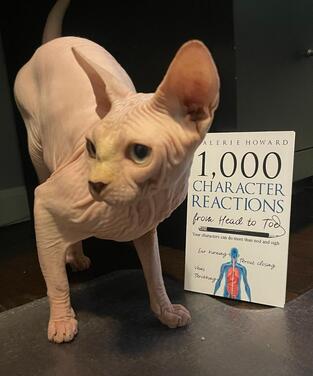
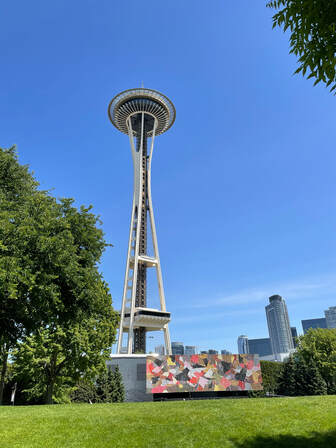
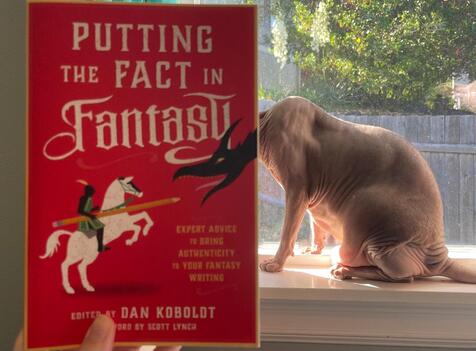
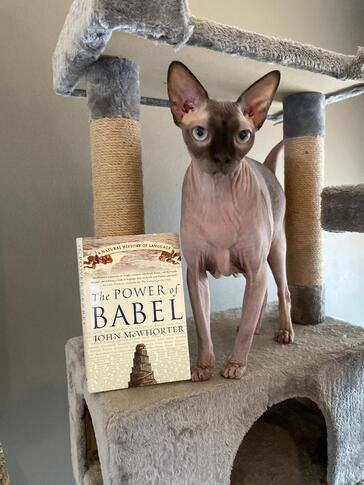
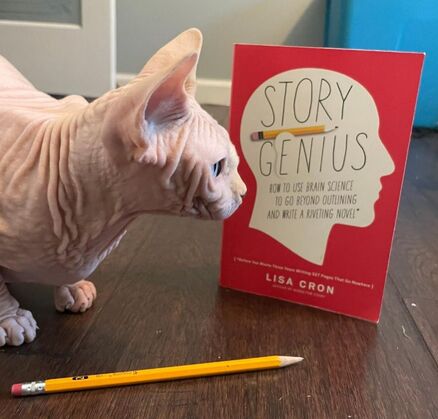
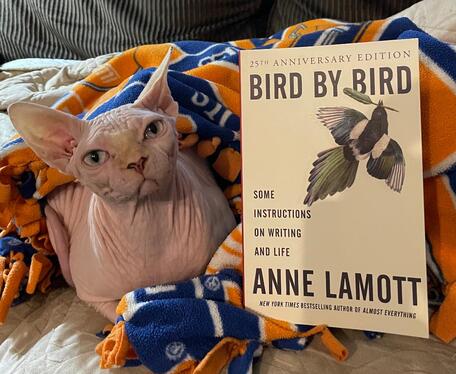



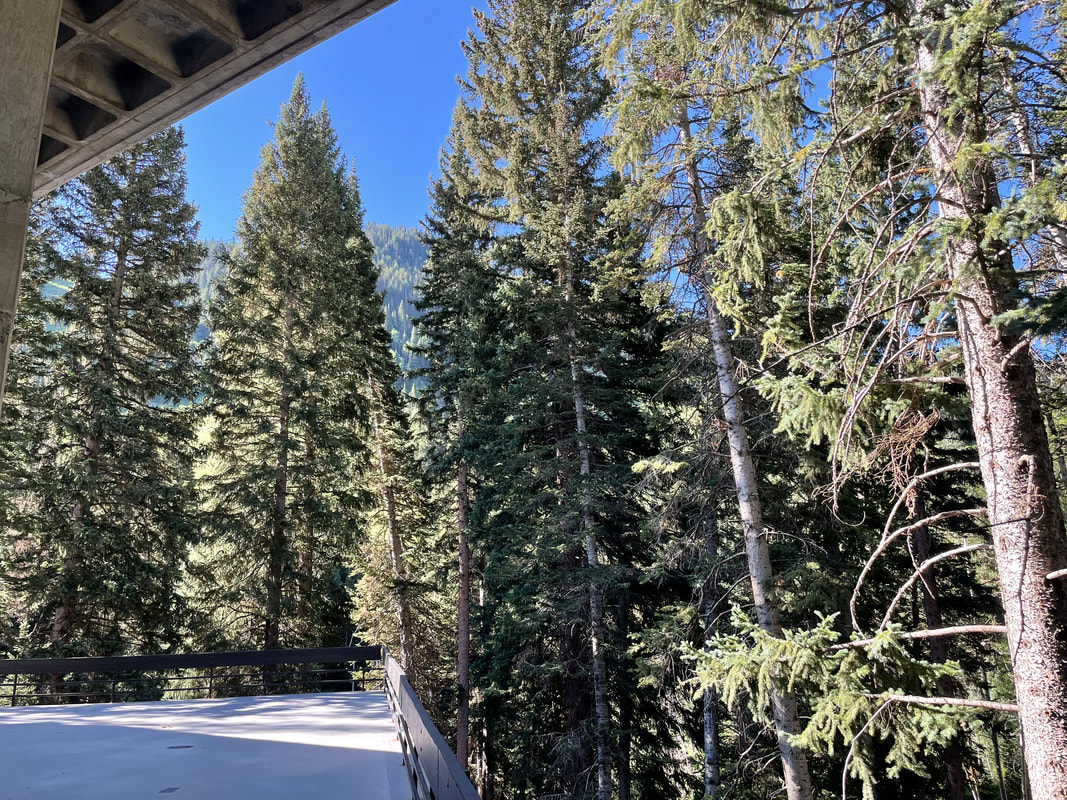
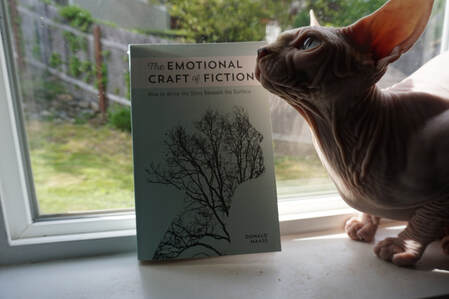
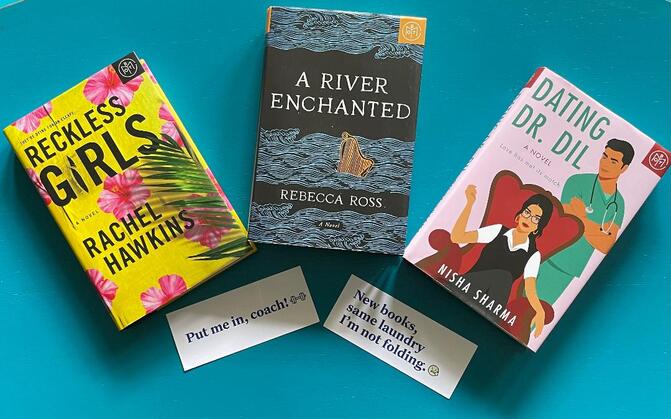
 RSS Feed
RSS Feed